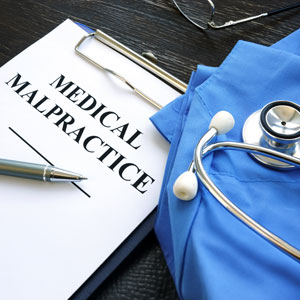Medical Malpractice Caps For Medicaid Patients Ruled Unconstitutional
Medical MalpracticeA federal judge ruled section 766.118, Florida Statutes unconstitutional with regard to damages caps for Medicaid patients who file medical malpractice cases in Dixon v. U.S., (Case No.: 15-23502-Civ-Scola, S.D. Fla. April 17, 2017).
$300,000 Damages Cap On Non-Economic Damages
The Marla Dixon and Earl Reese-Thornton, Sr., filed a Federal Tort Claims Act (FCTA) case after their son was born with severe brain damage at a federally funded clinic, North Shore Medical Center. The medical malpractice claim was a failure to perform a caesarian section. After 4 days of trial, the judge entered a total verdict for $33 million. $11.6 million of the verdict was for “non-economic” damages.
The government challenged the judge’s ruling by arguing that section 766.118, Fla. Stat. applies and caps non-economic damages at $300,000 because Ms. Dixon was a Medicaid recipient at the time of the incident. This specific legal issue has not been previously interpreted by courts in Florida.
The judge found all of the same arguments raised in Estate of McCall v. U.S., 134 So. 3d 894 (Fla. 2014) and Port Charlotte HMA, LLC v. Suarez, 210 So. 3d 187 (Fla. 2d DCA 2016) to find the law unconstitutional as a violation of principles of “equal protection.”
What Does This Mean For Medical Malpractice Claimants In Florida?
This judicial opinion is a step in the right direction. As a federal trial ruling, this case may be considered “persuasive” authority for another judge to make the same ruling. The ideas raised in this case would not become “binding” legal authority for all courts in the State of Florida until an appellate court upholds a similar result.
Damage Caps Because Of Socio-Economic Status Are Perhaps The Most Egregious Of All Tort Reforms
All caps on the damages that a person can collect in a court of law are inherently unfair when it comes to something such as medical malpractice. Anyone who is injured or loses a family member to medical malpractice never expects to be in such a situation and the loss can quickly devastate an entire family.
Capping the damages in a medical malpractice case just because the family was poor and using Medicaid is even worse. In recent political discussions at the federal level, several comments have been made about people who “pay for” their medical care to be entitled a higher level of medical treatment than those who “have not earned” their medical benefits. This distinction is entirely wrong.
Except for the extremely wealthy, most of us are merely one bad event from financial disaster and, thus, eligibility for Medicaid. Even someone who was worked a job for 40 years and paid the maximum in FICA/Medicare taxes can be one illness, injury, or job loss away from collecting Medicaid benefits. There is no shame whatsoever in collecting benefits and courts should not punish anyone for obtaining medical care on need based government benefits. Likewise, the cost of taking care of any child with birth defects or a severe brain injury (as in this case) far exceeds the earning ability of most parents.
The Real Problem With Damage Caps
Whether people are willing to admit it or not, a maximum limit to liability has a tendency to impact behavior. More specifically, there is a risk of moral hazard for doctors who can insure themselves up to the furthest extent of the damages and then they can basically run any risk that they want for maximum profit.
It should not be forgotten that medicine is a business, and big business at that. Damage caps only hurt the public. The practice of medicine with limited liability is a healthcare system with limited quality.
Help For Those Who Need It
If you or someone you know has been injured by medical malpractice, you should contact a Lakeland, FL medical malpractice attorney to discuss whether you have a lawsuit. If you have a valid legal claim, a medical malpractice attorney can obtain expert opinions that corroborate your theory of the case and can file a lawsuit on your behalf. Contact a Lakeland medical malpractice attorney for a free case review.


